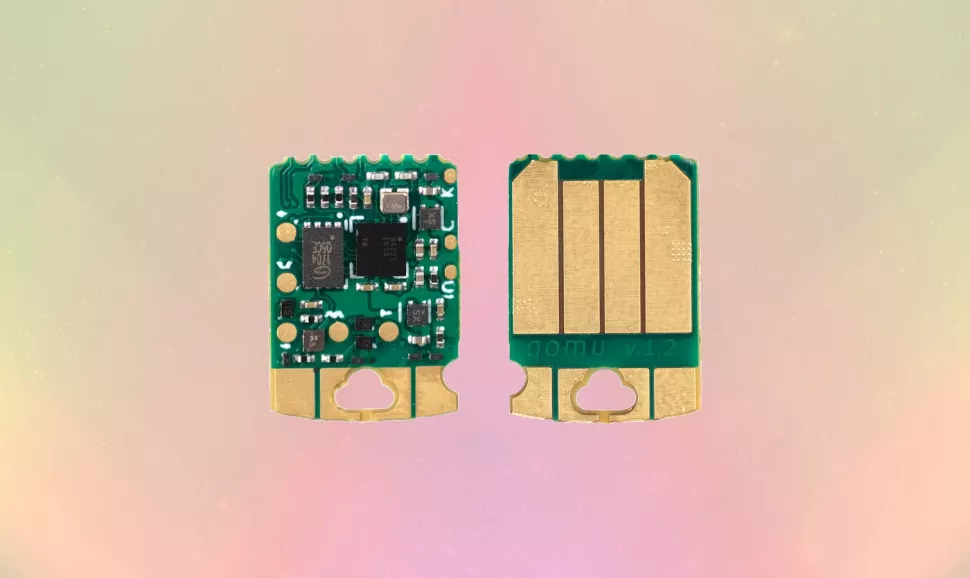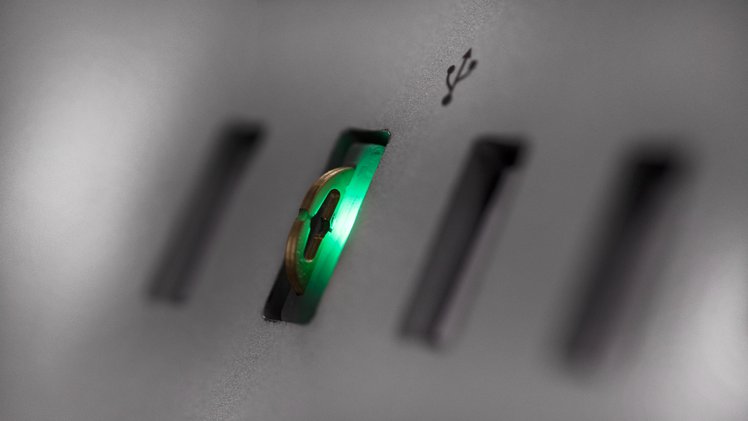
Miniaturization in electronics has achieved very impressive results. The other day, a system on a chip (SoC), Qomu, no larger than a fingernail, was introduced. This board is part of the Tomu family of miniature boards designed to connect to USB ports on PCs and laptops. Moreover, different boards have different specializations.
Qomu, for example, is an FPGA SoC specializing in machine learning, processor emulation, and custom circuitry. FPGAs can be programmed to perform a specific task, then modify the firmware to perform a different task. Qomu is capable of all this, being a very small board.

According to the developers, the QuickLogic EOS S3 on Qomu includes an Arm Cortex-M4F MCU and an embedded FPGA (eFPGA). Accordingly, the system can form, for example, an accelerated machine learning classifier or a custom schema for a new peripheral device. The device is compatible with any PC and laptop with USB Type-A. Due to its small size, the developer can take the board with him anywhere - it does not take up space at all.
It's important to note that this is an open-source tool that can be modified to suit the developer's needs.
System characteristics:
- QuickLogic EOS S3 SoC
- Arm Cortex-M4F MCU up to 80 MHz with 512KB of system memory.
- eFPGA with 2,400 logic cells and 64 KB of RAM with up to 8 RAM / FIFO controllers.
- Two dedicated multipliers.
- 16-channel DMA for data transfer within the SoC.
- Configurable SPI (controller and peripherals) and I2C controller interfaces.
- Ultra-low power consumption in µW.
- 16 Mbit flash.
- 4 capacitive touch pads.
- Three LEDs (R, G, B).
And then there's Somu and Tomu
Yes, besides the board, which is described above, there are still its "relatives".
Somu
Somu is a security key that can be used together to sign in to Google, Twitter, GitHub accounts with two-factor authentication. Actually, this key can be used with any accounts that have double authentication.
The device connects to USB, where you can leave it, if there are other free ports. Thus, you can avoid the danger of forgetting the device somewhere.

The board is a reliable FIDO2 dongle that works seamlessly with almost all services. Since FIDO2 / WebAuthn has now become a web standard, there will be no problems using the device.

By the way, Somu is an open source device, both software and hardware. It can be modified if necessary. It works on almost all platforms and is compatible with most browsers. If necessary, the key can be "closed", protecting yourself from physical attacks.
Specifications:
- Supported protocols: FIDO2, U2F
- Compatible OS: Linux, Microsoft Windows, Mac OS X, Chrome OS
- Compatible browsers: Chrome, Firefox, Edge, Safari support coming soon (GA in macOS Catalina)
- Secure Processor: STM32L432KC (cTRNG, key isolation, two levels of locked flash)
- Crypto algorithms: ECC P256
- Host Interface: USB-A
- Feedback: RGB LED
- Size: 0.5 x 0.5 x 0.1 inches (13 x 13 x 2.4 mm)
- Weight: 3g
And you can also not be afraid to wash the key in the typewriter - the developers say that it can withstand it without problems.
Tomu
Finally, another interesting member of the family is Tomu , an ARM board that also connects to a USB port and is so tiny that it almost completely fits inside it.
Specifications
- Processor: Silicon Labs Happy Gecko EFM32HG309
- Performance: 25 MHz ARM Cortex-M0 +
- RAM: 8 KB
- Memory: 64 KB Flash
- Connection: USB 2.0 FS
- Buttons: 2
- LEDs: 2 (red + green)
